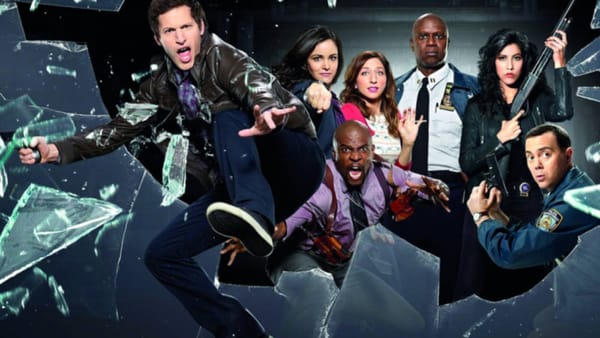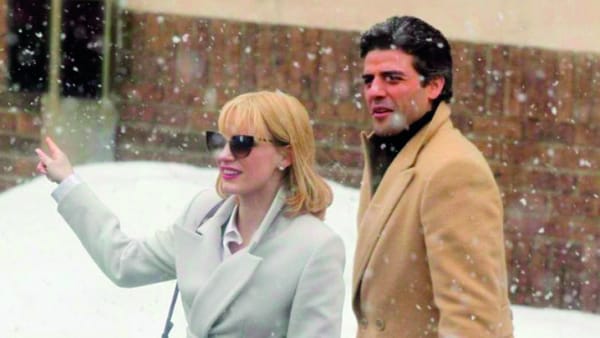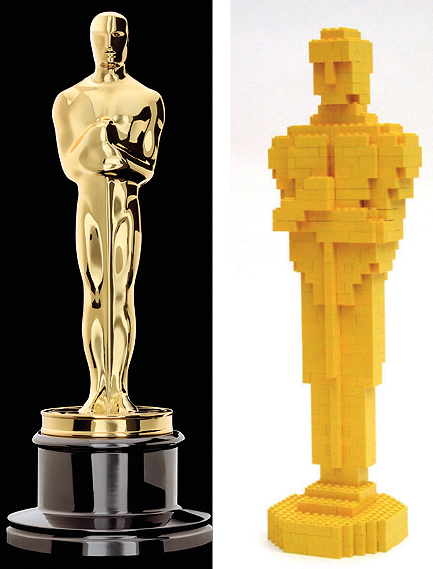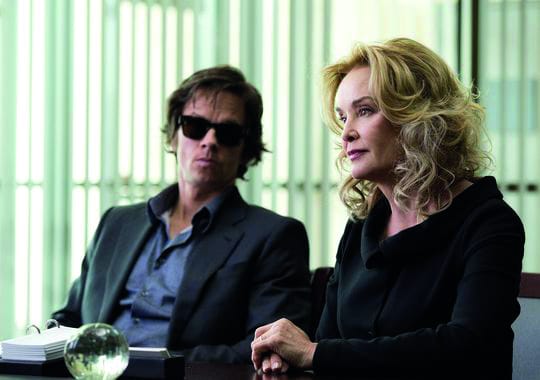The Best Show Not On Television
Joshua Renken gives a spoiler-free overview of the U.S. Netflix hit show, House of Cards
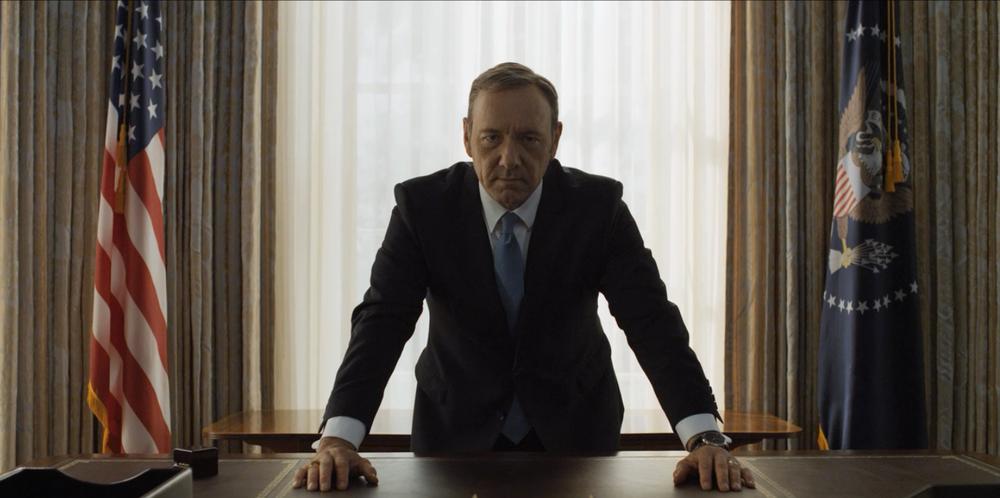
Based on the novels by Michael Dobbs and the British political drama by Andrew Davies, House of Cards is a Netflix original series that follows U.S. Congressman and Majority Whip Francis Underwood, played by Kevin Spacey, who after being denied the position he was promised of Foreign Secretary in a new democratic cabinet sets out to take revenge on the administration he helped to elect and take the Presidency for himself. The series also stars Robin Wright as Frank’s chilling wife Claire, and Kate Mara as the young journalist Zoe Barnes, who forges a secret relationship with Frank in a desperate attempt to get her professional break.
House of Cards is an American remake of the four-part 1990 miniseries of the same name and signifies a real landmark in the continuing evolution of television production and consumption. Netflix chose to upload each of 13-episode web television series all in one go, dispensing with the television convention of releasing an episode every week. The first two seasons of House of Cards have been released on the February of each year beginning in 2013 and the third series will be put up on the site on Feb 27th.
At the centre of this show lies the enigmatic relationship between Frank and Claire Underwood. This pair of two-faced, power crazed sociopaths have created a successful partnership built on a fierce mutual respect and candid communication that allows them to overcome the conflicts that emerge as they rise up the political food chain. Constantly scheming about future events, Frank and Claire often share a single cigarette late at night to discuss their strategies for the next day. Their marriage is filled with sexual promiscuity and secrets on both sides, but somehow their reciprocal admiration and shared sense of ambition overrides these problems to create a sleek and highly utilitarian relationship that works for both of them.
A self-made man with a thick southern drawl, Frank shows little personal regard for political ideology, instead favouring “ruthless pragmatism”. He is a master of persuasion and political manoeuvring who is remorseless in his acquisition of power for power’s sake. As Claire says: “He’s a man who knows how to take what he wants”. Frank has sexual liaisons with both men and women during the series, but he is never explicitly identified as gay or bisexual. At one point after a conversation with his wife, Frank declares: “I love that woman. I love her more than sharks love blood.” This comparison suggests a kind of animalistic passion but could just have been included by the writers to draw attention to the Frank’s bloodthirsty and visceral obsession with power that Claire encourages and facilitates. She is a constant source of empowerment for him. “My husband doesn’t apologize,” she tells him after a setback. “Even to me.” Some have suggested that Frank is secretly gay, but becomes attracted to women due to the sense of dominance that it gives him. “A great man once said, everything is about sex. Except sex. Sex is about power.” This famous Oscar Wilde quote seems especially pertinent when it comes to Frank’s sexuality.
Frank Underwood first attended military academy before going onto Harvard Law, where he met Claire. It was her parents that bankrolled Frank’s political campaigns early on. His political success stems from his ability to subtly sway people to act in the way that best suits his interests. This is easier to do in some that others, but Frank always finds a way to beat his opponents. In_ House of Cards_ you are led to believe that Frank and Claire are both ready to do anything that is required, that there is no end to the depths of their depravity.
One of the most refreshing aspects of this series is the regularity with which Frank Underwood ‘breaks the fourth wall’ and talks directly to the viewer. There are many critical moments in conversations when Underwood will lean in and face the camera, giving a pithy explanation to help elucidate the gravity of the situation. Frank also likes to reflect on other character’s misgivings and weaknesses. After one heated exchange betaween himself and a former staffer, Frank professes his strong preference for power over money. “Money is the McMansion in Sarasota that starts falling apart after 10 years. Power is the old stone building that stands for centuries. I cannot respect someone who doesn’t see the difference.”
Frank’s straight-to-camera monologues make the experience of watching_ House of Cards_ feel that much more personal and indulgent to watch than other series. And this component works especially well when you consider the way many people are watching it – individually on their laptops. Frank’s intimate disclosures help the audience to see things from his perspective; where other characters are regarded as little more than pawns that he can manipulate. This show is awash with great lines from Frank and his soliloquies work very well to add some nuance to the series.
Frank is one of that strange breed of characters; a likeable villain. One other likeable villain is Shakespeare’s Richard III, who is coincidentally the last character that Kevin Spacey played before stepping into Underwood’s shoes. Richard III breaks the fourth wall in the original play and there are actually a great many parallels that can be drawn between House of Cards and two of Shakespeare’s greatest plays: _Richard III _and Macbeth.
Beau Willimon writes Underwood’s monologues exceedingly well. For example in a scene where he is alone in a church after a significant service, he speaks the lines: “There is no solace above or below, only us, small, solitary, striving, battling one another, I pray to myself for myself”. Almost every line is quotable. Borderline poetry.
The very first words that Frank utters in the first episode are: “There are two kinds of pain. The sort of pain that makes you strong, or useless pain. The sort of pain that’s only suffering. I have no patience for useless things.” (He strangles a dog to end it’s suffering after a car collision) “There. No more pain.”
Robin Wright gives a career topping performance as Claire Underwood, the Lady Macbeth of modern day Washington. Claire is a lobbyist and runs an environmental nonprofit organization, while acting as Frank’s primary accomplice. She is every bit as hungry for power as her husband and in many ways, comes across as even more insidious than Frank. Claire is clinical and considered in her actions, with a cold exterior and the capacity for barbaric threats if the moment demands. “I am willing to let your child wither and die inside you, if that’s what’s required” stands out as a particularly memorable instance of hostility towards a former employee. Claire is very much the ice-queen of American politics.
House of Cards does a great job at showing the wheels of democracy in action and shines a light, albeit a dim one, at the ugly culture of private scheming and negotiation that goes on in Washington behind closed doors. It’s not pretty, but it’s certainly exhilarating and you cannot help but be stimulated by the candid conversation. Favours are constantly being exchanged that range from money, information and public backing to sex or getting people’s kids into the right Colleges. Washington is portrayed as a relentless dog-eat-dog arena full of secrets, where people blur the boundaries between private and public incentives to get ahead. In House of Cards we see that politics is a dirty game played by smart people. If the idealism and romanticism of The West Wing gave you faith in politics, then _House of Cards _will swipe it away with unsettling rapidity. This is not a show that gives you faith in humanity.
One of the problems with _House of Cards _is that the Underwoods are implausibly effective at getting what they want, to the point where other characters seem slow and uncalculating by comparison. President Walker, for instance, is unrealistically susceptible to manipulation. Given that it appears to take a man as Machiavellian as Frank to make it to the top spot, Garrett Walker is remarkably easy prey.
Another issue with House of Cards is that, so far, Frank has not been seriously challenged yet. Sure, he’s experienced small setbacks but nothing that has really tested him or pushed him anywhere near his breaking point. Great television series of the past such as _Breaking Bad,The Wire _and The Sopranos allowed the audience to see the weaknesses in their protagonists, whether they were a hero or anti-hero. But the writers for _House of Cards _have so far produced a plot that only serves obstacles that the audience is confident Underwood can conquer. However, series three is likely to put an end to this.
There is no denying that House of Cards is Kevin Spacey’s show. It’s all about Frank. This makes all the other subplots pale in comparison and you quickly begin to lose interest. The guinea-pig wielding cyberterrorist in series two for instance, and even Zoe’s ex-boyfriend’s investigations, is far less interesting than whatever Frank is doing. _House of Cards _has some of the best individual scenes I’ve ever seen on the small screen but the show bounces around a little more than want it to and the plot feels disjointed as a result.
Throughout House of Cards there are some startling moments that come out of nowhere and are never referred to again. A lot of these events are significant to the character’s involved but do not contribute one jot towards the overall storyline. Since all of these moments have so far remained unexplored it looks as though the writer’s just shoehorned some surprising twists into the script for shock value, much to the detriment of the overall series. It smacks of a last minute attempt to add intrigue but on reflection these moments feel like hollow shocks, with nothing behind them to add to the story.
Credit must go to the cinematographer Eigil Bryld for creating such an enthralling and secretive atmosphere, even when a scene is being filmed in broad daylight. The production quality generally is first class. Several directors have shot two or three chapters, but David Fincher’s early influence left a strong impression on the whole show. House of Cards is beautifully shot and Jeff Beal’s fantastic soundtrack features a trickling piano solo that perfectly captures the sly, calculative mindset of the characters.
Despite being a political thriller, House of Cards is as much a character study of Frank than it is a series about Washington politics. With a stellar cast and great dialogue, House of Cards is a delicious meditation on power and amorality that is confident in its execution and elegant in its presentation. It features a universally excellent set of performances by the cast and Spacey in particular must be praised for owning his demanding character to become one of television’s best antiheroes.
Ever since its release there has been a lot of talk about how _House of Cards _is a revolutionary piece of television, but while it is a true pleasure to watch, it doesn’t bring very much to the table in terms of commentary that wasn’t already there before. This is a show that captured the zeitgeist and turned it up to eleven, instead of challenging presumptions. The series takes the same cynical stance as almost every other political show in the last few decades that wasn’t written by Aaron Sorkin. House of Cards is a series that tells us mostly what we already know, and it does not go about telling it in as subtle or intelligent a way as, say, _Mad Men _or Breaking Bad. In the whole series, the most striking and fresh aspect of House of Cards is the dynamic between Frank and Claire.
Despite Frank’s morally irreprehensible behavior and twisted morality, there is a curious temptation to will him on, to see how far the Underwood’s can get before it all falls apart. Frank is the kind of unscrupulous political operator that we all hope doesn’t really exist. The idea that democracy is a veil for the rich and powerful to exert huge influence is a terrifying one; but crucially, it is a compelling one. We all want to see how Frank’s story plays out. Will he become President and succeed as leader of the free world, or will his meteoric ascent end up collapsing like… well like a House of Cards?
Best served in the form of late night binges, _House of Cards _is very good at persuading you to click ‘Next Episode’ when you should probably go to bed. It’s a heavyweight piece of television, just as Netflix is now a heavyweight content provider. All there is to say is give it a go. Soon you’ll be hypnotized.
Series 3 will be on Netflix Feb. 27th.


